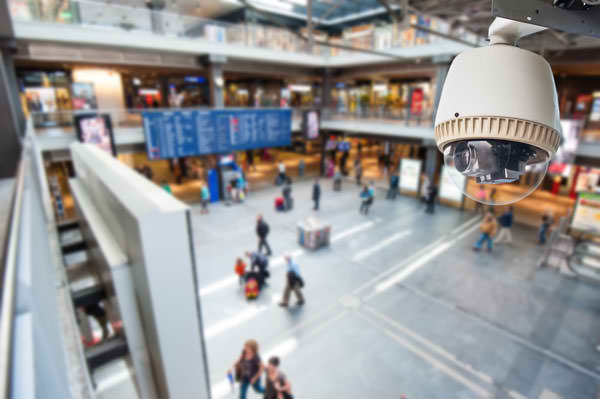Security is one aspect of any business that should never be skimped on or compromised. Investing in a good security system and implementing it well will pay off exponentially in the protection it gives to your establishments and, in turn, your bottom line. Most business establishments by now probably already have a surveillance system installed, but if you are a new business or are an older one looking to renovating your existing establishment, you should definitely consider making the jump to IP security cameras.
But before anything else, we have to discuss what an IP security camera even is. Right now there are two types of security cameras in widespread use: analogue (also spelt *analogue*) and IP (or digital). Both of these types of cameras function more or less the same in many aspects, but analogue cameras, as the name implies, records an analogue signal that needs to be converted into a digital signal using a separate device before it is sent into the video recording device. IP cameras, meanwhile, directly encode their recorded footage into a digital signal, removing the need for separate converting devices.
On top of that, IP cameras offer some benefits that render the older analogue cameras outright obsolete. Most IP cameras today come equipped with larger sensors much like those used in photography, which results in a higher resolution output and a higher quality recording overall. These sensors give IP cameras a video resolution that can go as much higher than that of analogue cameras. IP cameras, judging from the name, make use of the Internet Protocol to provide footage to the network with provisional password access by the user. The NBN network will provide better and faster speeds for this kind of access.
Besides all of these features, the greatest benefit that a hybrid Analogue/IP camera system brings is its ability to integrate with existing CCTV security camera systems in your premises. It will pride better resolution across your existing cameras without the cost of replacing all cameras if budget is a constraint. Additional services such as CCTV monitoring by a professional provider like Casa Security can also provide such services as Video Verification of alarms, Safe Exit and more, providing real-time solutions to your security needs.
These Internet capabilities give IP cameras several additional benefits. First off, IP cameras only need you to plug in one cable (the power cable) unlike the two needed on analogue cameras (video and power). Second, the recording device does not need to have an analogue to digital converter; instead, you can essentially use any device that has the software capabilities for outputting digital video signals, such as a computer. Third, because IP cameras connect over the Internet, some IP camera systems offer wireless broadcasting features that can create a secure address on the World Wide Web where you can view any of your cameras’ recordings. The best part? So long as you are connected to the Internet and know what this web address is, you can keep an eye on your establishment through your cameras from anywhere in the world, and even on a phone, tablet, or a different computer.
Besides all of these features, the greatest benefit that an IP camera system brings is its ability to seamlessly integrate with other security systems that you either already have or could implement in the future. Many other security devices available on the market today are able to work with (or in some cases even require) computers, and as most IP cameras can do the same, a central computer can be installed to act as a hub connecting all of these security devices together to create an interconnected security system that works more efficiently and effectively.

